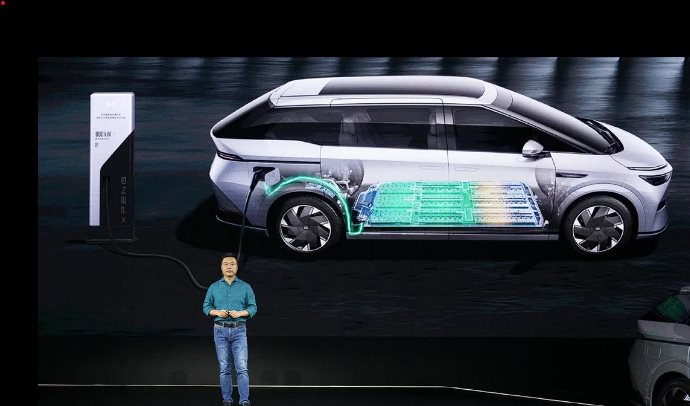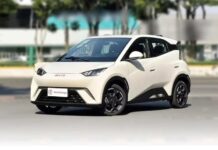
Illustration
Chinese electric carmaker X-peng has unveiled its new S5 fast charger, boasting a charging power of up to 800 kW. This enables vehicles to achieve over 300 km of range in just 5 minutes of charging. The next-generation supercharger will be launched in the market by the end of this quarter, offering a significant leap in charging speed compared to current offerings.
This information was shared by X-peng’s Chairman and CEO, He Xiaopeng. Mr. He revealed that the S5 super-fast charger has a maximum output current of 800 A and a maximum output voltage of 1,000 V, allowing for over 1 km of range per second of charging. In comparison, Huawei’s previous record-holding charger had a power output of 600 kW. He also added that the next-generation fast charger takes less than 13 seconds from plug-in to the start of charging.
Prior to this, Xpeng’s most powerful charger was the S4, launched on August 15, 2022. The company claimed that the S4 charger could provide a range of 210 km in just 5 minutes of charging. According to Xpeng, the S4 supercharger has a maximum power output of 480 kW, a maximum current of 670 A, and a peak charging power of 400 kW.
As of the end of July, Xpeng has 1,300 operational charging stations, including 1,000 fast-charging stations across China. The company is targeting 10,000 self-operated charging stations by 2026, including 4,500 liquid-cooled supercharging stations. In 2023, Xpeng sold a total of 141,601 electric vehicles. For this year, the company has set a sales target of 280,000 units.
According to the China Electric Vehicle Charging Infrastructure Promotion Alliance, China had 2.7 million public charging stations at the end of 2023. This number is expected to increase by 40% in 2024, but only a fraction will support fast charging.
Other Chinese automakers are also developing their charging networks. Nio, for example, has 2,306 fast-charging stations in China, offering 10,532 chargers. Additionally, they have 1,619 regular charging stations with 12,385 chargers and 2,458 battery swap stations. Li Auto is also actively building its charging infrastructure in preparation for the launch of more battery-electric vehicles (BEVs) next year. Currently, Li Auto has 701 charging stations and aims to have over 2,000 by the end of this year and more than 5,000 by the end of 2025.
Globally, Tesla has been a pioneer in developing fast-charging networks. The company began installing fast-charging stations in China back in 2014 and had over 11,000 chargers as of November 2023. However, most of these stations are only compatible with Tesla vehicles. In 2023, Tesla announced that they would open their network to other electric vehicles, but this only applies to about 20% of their stations.
According to CNC















